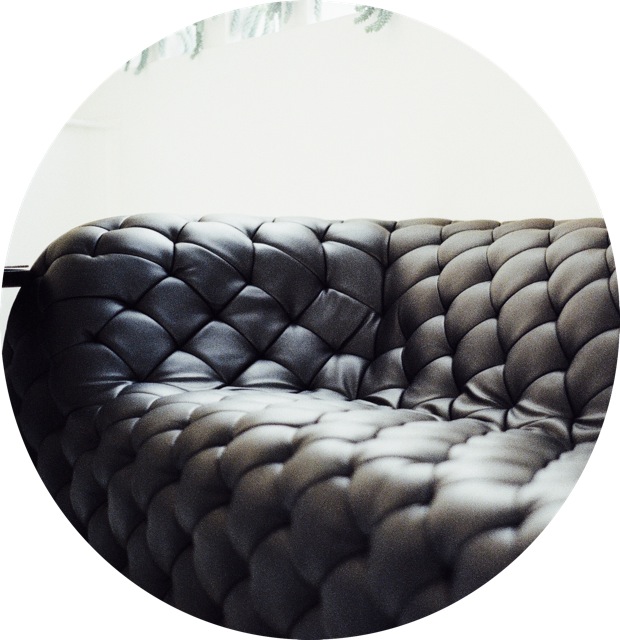When I tell people what my profession is, they often are surprised. It is unusual for a psychologist to work in the field of architecture, room design and habitation. A lot of questions turn up: Why is the field interesting for a psychologist? How can psychology help people find the fitting room design or creating a home that is a haven for them? Is room psychology the same as feng shui?
I try to answer some of them in the following FAQs.

FAQ:
1. What do you do as a room psychologist or a psychologist of habitation?
2. What is room psychology and where does it come from?
3. Is room psychology the same as feng shui?
4. What profession did you learn and what trainings did you go through?
5. Who are your clients?
1. What do you do as a room psychologist or a psychologist of habitation?
I study the impact and influence rooms have on individuals and advise people concerning room design and decoration – for all kind of rooms, like home, offices or shops. I also work as a home stager, preparing homes for sale.
2. What is room psychology and where does it come from
Room psychology is a field inside the so called environmental psychology. Psychologists often study the relationship between the person and the surrounding environment – and one our most important environment are the rooms we stay in. People in modern world spend about 90 % of their lifetime inside of buildings and rooms. Room psychology studies the influence rooms have on persons and how we can design rooms, that fit the person living or also working in it. Because the relationship between rooms and men is mutual, it is an interaction: rooms take influence on us and we at the same time design and change the rooms.
This boundary between psychology and architecture attracted interest in the 1960s, when some architects and psychologists tried to define criteria for the design of rooms in hospitals and sanatoriums and started research in this field. Later also the ideal interior and room design for schools, offices and homes was in focus.
But psychology right from the start focused on human perception of colour, form, light and material and their influence on the individual. Many principles of room and interior design lay on the early findings of psychological research.
There are several terms for my profession with slightly different meanings: Room psychology with the focus on the relationship between humans and the rooms surrounding them. Psychology of habitation with the focus on how we live in our homes. Architectural psychology with focus on the relationsship between humans and architecture.
I prefer room psychology, because for me it includes all kind of rooms.
3. Is room psychology the same as feng shui
No. Feng shui and room psychology may have the same goal: to create rooms, that work perfectly well for their inhabitants or users. But the origin and essence of feng shui is totally different from room psychology. The former is part of a Chinese philosophy or even more like a religion, consisting of ideas of how the universe is working and how to live in harmony with earth and your environment. The idea is of a power (Chi), floating through everything, which can be regulated or controled in its flow, in a way that helps your own energy. Feng shui postulates that you can also regulate the flow of the Chi in your rooms with certain methods. It is like a top down approach: There are laws for the universe to work and they – like everywhere – also are valid for your rooms.
Room psychology however is part of a western scientific approach to the world. Psychology has the human being in the focus of attention: how the human perception works, how humans think, feel and act and what influences the human perception, feelings, thoughts and actions. It is more a bottom-up approach: from the human needs to the design of the room.
4. What profession did you learn or what trainings did you go through?
I am first of all an psychologist; I studied Psychology at the University of Vienna with focus on psychological assessment and clinical psychology. After that I went to the University of Leipzig, where i wrote my master thesis and got my PHD in the field of psychological assessment. The fields of habitation, interior and room design and architecture and their boundaries to psychology were also important topics to me, even if I did not work on them professionally. After my research time at university and several years at a senior manager at a company for psychological and medical assessment I founded my own business as a psychologist of room, offering counseling and design. I studied room design for one year avocational (but did not attend the exams) and made a training as a Home Staging professional, which I am certified as.
5. Who are your clients?
My clients are single, couples or families who are not happy with their homes or have troubles finding the right interior or room design for one or more rooms of their house or apartment.
My clients are also companies who want to improve their offices and workspace for their employees to increase motivation and performance.
My clients are shop owners who want their shops to be a surrounding customers love to visit and therefore increase their sales.
My clients are property owners who want to sell their house or apartment quick and for the best price.
And my clients of course are all the people reading my books and my blog or other texts I write.
You must be logged in to post a comment.